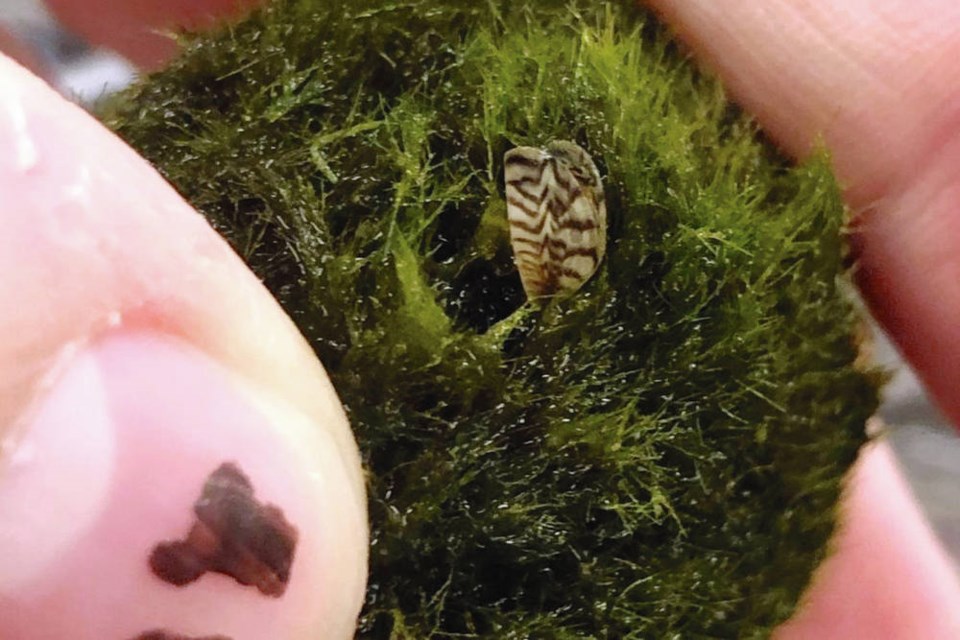The province is raising the alarm after moss balls imported from Europe and sold for aquariums and ponds were found to be infested with zebra mussels.
The freshwater mollusks are considered one of the most dangerous invasive species to British Columbia, with a study suggesting established populations could cost the province more than $43 million a year in damages to hydro operations, municipal water and irrigation systems, and recreational boating.
The B.C. Conservation Officer Service said the financial impact doesn’t include potential damage to aquatic food webs that would seriously harm fish stocks, including valuable native fish populations such as sockeye salmon.
The mussels are filter feeders that strain suspended food particles out of the water, disrupting natural food chains.
The Invasive Species Council of B.C. is advising aquarium owners and those who stock outdoor ponds with plants to carefully check any recent purchases of ornamental plants made either in stores or by mail.
Conservation officers started notifying and inspecting plant and pet stores across B.C. over the weekend.
“They came in and said if you’ve got moss balls, don’t sell them,” said Ty Hahn, who owns Creatures Pet Store on Blanshard Street and the online portal Aquarists Across Canada, which sells to fish-tank enthusiasts nationwide.
“So we put what we had into bags and put them in quarantine. If they want to inspect them or tell us to dispose of them, we will.”
Hahn said his store, the largest fish and aquarium operation in the city with about 150 tanks, sells between three and five moss balls — also known as marimos — a month for about $15 each. Last year, he sold 49 in total.
He said most of the moss balls he sells are from a single supplier and grown in a lab, although he has had others where the moss is harvested from waterways.
Zebra mussels have already been discovered in moss balls in Terrace and parts of the Lower Mainland, and the Alberta government confiscated a large shipment containing the mollusk last week. Saskatchewan has also reported zebra mussels in recent shipments of aquarium moss balls.
In the U.S., zebra mussels have been found in moss-ball shipments from Europe and Asia, with an initial discovery on Feb. 25 in Seattle at a U.S. pet-store chain. They’ve been found in 30 states, from Alaska to Florida.
“This is a major alert, and it could be a major problem with serious economic and social impacts,” said Gail Wallin, executive director of the Invasive Species Council of British Columbia.
“Once they take hold, there isn’t much you can do. Once they’re established, there are zero tools we can use to get rid of them.”
Zebra mussels can produce about a million eggs each year and don’t have any natural predators in B.C. waters.
The province has collaborated with Alberta and neighbouring U.S. states on a program to check boats and other watercraft crossing boundaries for zebra mussels for the past several years.
Hitching rides on imported water plants is a relatively new threat, and Wallin said aquarium owners and plant retailers should be cautious and check their plants and clean their fish tanks.
If you find mussels, conservation officers say, put the moss ball into a sealable plastic bag and freeze for at least 24 hours. Or you can place the moss ball in boiling water for one full minute. Then put it in the trash.
Do not flush moss balls down the toilet or dispose of them in the compost. Wallin said never dispose of any aquarium water, pets or plants by pouring them into a sink, flushing them down a toilet or releasing anything into a river, lake or waterway.
Tanks can be cleaned with hot water and a bleach solution “to eradicate microscopic larvae.



